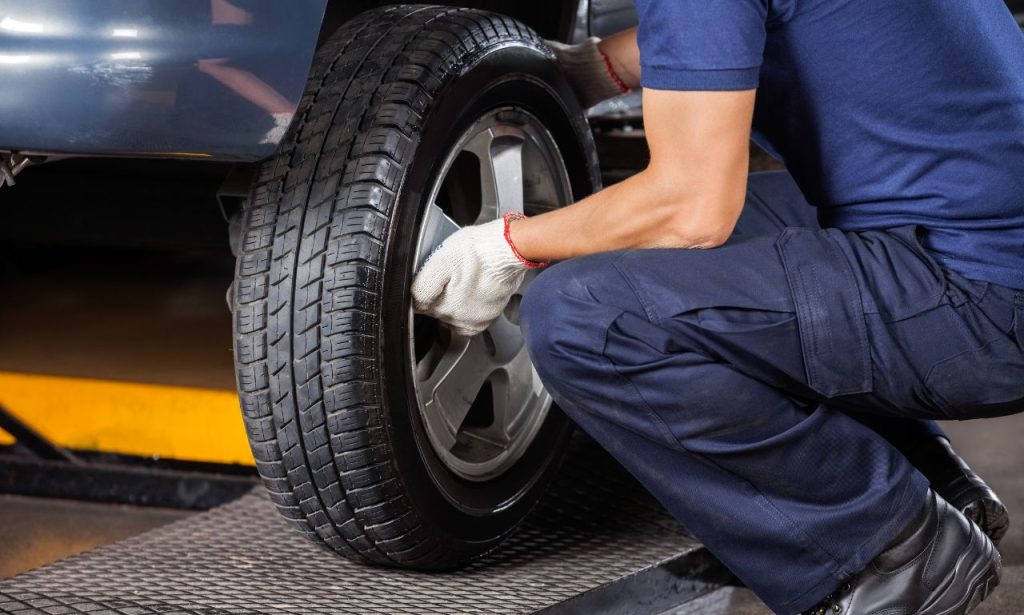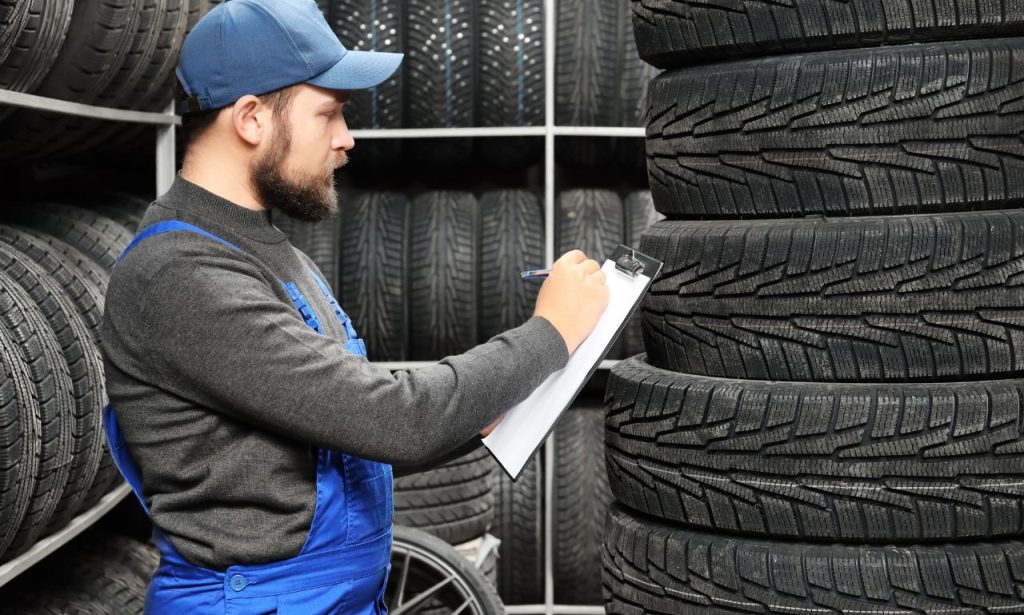Finding trustworthy tire shops nearby is essential for safety and peace of mind on the road. Whether you’re tackling daily commutes or planning an epic road trip, local tire shops offer the expertise and personalized service you need.
Benefits of Choosing Local Tire Shops
Opting for local tire shops over big-box chains brings a host of advantages. These neighborhood establishments are deeply rooted in the community, offering personalized attention that larger corporations can’t match. Local tire shops understand the specific driving conditions of your area be it harsh winters, heavy rainfall, or rugged terrains which means they can recommend tires best suited to your environment.
Moreover, supporting local businesses strengthens your community’s economy. The money you spend stays within the area, fostering growth and creating jobs. Local shops often prioritize customer relationships, ensuring you’re not just a transaction but a valued client. They might remember your name, your vehicle’s history, and offer tailored advice, making each visit a personalized experience.
Key Services Offered by Tire Shops

Tire shops are more than places to buy tires, they’re comprehensive service centers dedicated to keeping your vehicle running smoothly. Understanding the array of services they offer can help you make the most of what these shops provide.
Tire Installation
Professional technicians ensure that tires are mounted correctly, balanced, and adhere to manufacturer specifications. They use specialized equipment to prevent damage to the rims and tires during the process.
Installation isn’t just about putting a tire on a wheel; it involves precise balancing to avoid vibrations and uneven wear. Expert installation extends the lifespan of your tires, improves fuel efficiency, and enhances the overall handling of your vehicle.
Tire Maintenance
Tire shops offer maintenance services such as tire rotations, balancing, and pressure checks. Rotating your tires every 5,000 to 8,000 miles promotes even tread wear, which can extend tire life and improve performance.
Balancing ensures that the tire and wheel weight is evenly distributed, preventing vibrations at high speeds. Proper tire pressure is vital not only does it affect fuel economy, but underinflated or overinflated tires can lead to premature wear or even blowouts.
Tire Repair
Tire shops provide repair services that can save you the cost of a new tire. Skilled technicians assess the damage to determine if a repair is safe and viable. They use industry-standard methods, such as patching or plugging, to fix punctures in the tread area.
Attempting DIY repairs can be risky. Without proper sealing, air leaks can persist, leading to unsafe driving conditions. Trusting professionals ensures that repairs meet safety standards, giving you confidence on the road.
Wheel Alignment
Misaligned wheels can cause your car to pull to one side, create uneven tire wear, and decrease fuel efficiency. Tire shops use precision equipment to adjust the angles of your wheels, aligning them to manufacturer specifications.
Regular alignment checks are recommended, especially after hitting a pothole or curb. Proper alignment improves steering response, ensures even tire wear, and enhances overall safety.
Oil Changes
While primarily focused on tires, many shops offer additional services like oil changes. Regular oil changes are vital for engine health, lubricating moving parts, reducing friction, and preventing overheating. Tire shops provide convenient maintenance solutions, allowing you to address multiple vehicle needs in one visit.
Using high-quality oil and filters, professionals ensure your engine runs smoothly. They can also perform courtesy checks on essential components like brakes and fluids, offering comprehensive care for your vehicle.
Understanding Tire Pricing
Navigating tire pricing can be complex, with various factors influencing costs. Understanding these elements helps you make informed decisions, ensuring you get value without compromising on quality.
Factors Influencing Tire Prices
Several factors affect tire prices, including:
- Brand Reputation: Premium brands like Michelin or Bridgestone often cost more due to their proven performance and quality.
- Tire Size: Larger tires require more materials, increasing the price. Specialized sizes for SUVs or performance vehicles may also be pricier.
- Tread Design: Tires with advanced tread patterns for specific conditions (e.g., all-terrain, winter) often have higher costs due to specialized engineering.
- Performance Ratings: Tires designed for high speed, load capacity, or specific performance attributes may carry a premium price.
- Material Quality: Tires made with higher-grade rubber compounds provide better durability and performance, reflecting in the price.
Understanding these factors allows you to balance your needs with your budget, selecting tires that offer the best value for your circumstances.
How to Find the Lowest Prices
To secure the best deals on tires, consider the following strategies:
- Compare Multiple Tire Shops: Prices can vary significantly between shops. Obtain quotes from several local tire shops to compare costs.
- Look for Promotions: Many tire shops offer seasonal sales, discounts, or rebates, especially during specific times of the year.
- Bundle Services: Some shops provide discounts when you purchase a full set of tires or combine services like installation and alignment.
- Consider Off-Brand Options: While premium brands offer excellent quality, some lesser-known brands provide comparable performance at a lower price.
- Negotiate: Don’t hesitate to discuss pricing with the shop. They may match a competitor’s price or offer additional discounts.
Special Offers and Packages
Tire shops often create value-added packages to attract customers. These may include:
- Free Lifetime Rotations: With the purchase of tires, some shops offer free rotations for the life of the tires.
- Alignment Discounts: Reduced pricing on wheel alignments when purchased with new tires.
- Road Hazard Protection: Protection plans that cover repairs or replacements due to road damage.
- Installation Packages: Bundled services that include mounting, balancing, and valve stems at a discounted rate.
- Loyalty Programs: Repeat customers might receive special pricing or early access to sales.
Taking advantage of these offers can significantly reduce the overall cost and add value to your purchase.
Financing Options for Tire Purchases

Investing in new tires can be a significant expense. Fortunately, many tire shops offer financing options to help manage costs without compromising on quality or safety.
Benefits of Using Affirm
Affirm is a financing solution that allows you to pay for your tires over time with transparent terms and no hidden fees. Benefits include:
- Flexible Payment Plans: Choose a payment schedule that fits your budget, ranging from a few months to a year or more.
- Instant Approval: Easy application process with quick decisions.
- No Hidden Fees: Know exactly what you’ll pay upfront, with no surprises.
- No Impact on Credit Score: Checking your eligibility doesn’t affect your credit score.
Using Affirm can make higher-quality tires more accessible, ensuring you don’t have to compromise due to upfront costs.
Exploring Other Financing Options
Beyond Affirm, several other financing avenues are available:
- In-House Financing: Some tire shops offer their own payment plans, sometimes with promotional interest rates.
- Credit Cards: Using a credit card with a low-interest rate or promotional period can spread out payments.
- Manufacturer Financing: Tire manufacturers occasionally provide financing deals when purchasing their products.
- PayPal Credit: If buying online, services like PayPal Credit offer deferred payments with certain sellers.
- Local Credit Unions: Personal loans from a bank or credit union can be an option if you’re making a large purchase.
Exploring these options allows you to choose the financing method that best aligns with your financial situation.
How to Buy Tires Online
Purchasing tires online is a convenient option that can sometimes save you money. Here’s how to navigate the process effectively.
Steps to Purchase Tires Online
- Determine Your Tire Size: Check your vehicle’s owner manual or the sidewall of your current tires for size specifications (e.g., P215/65R15).
- Assess Your Needs: Consider the type of driving you do and the performance attributes you need—such as all-season, high-performance, or off-road capabilities.
- Research Reputable Online Tire Shops: Look for established retailers with good customer reviews and robust customer service.
- Compare Tire Options: Use filters to narrow down choices by size, brand, price, and features.
- Read Customer Reviews: Gain insights from other buyers on tire performance and satisfaction.
- Check for Promotions: Look for discounts, rebates, or bundle deals.
- Add to Cart and Proceed to Checkout: Enter your details, select shipping options, and review charges.
- Choose Installation Method:
- Ship to Home: If you have the means to transport and install tires.
- Ship to Local Installer: Many online retailers partner with local tire shops for installation.
- Schedule Installation: Contact the installer to set up an appointment.
Buying online can offer a broader selection and potentially lower prices. However, factor in shipping costs and installation fees when comparing prices to local shops.
Common Customer Questions
- Can I Return Tires If They Don’t Fit?
Most online retailers have return policies, but conditions apply. Tires must typically be unmounted and in new condition. Always verify the return policy before purchasing. - Are Online Tire Prices Cheaper?
Online retailers often have lower overhead, which can translate to lower prices. However, consider total costs, including shipping and installation, when comparing to local shops. - How Do I Ensure I’m Buying the Right Tires?
Utilize online tools that match tires to your vehicle’s make and model. When in doubt, consult with customer service or a local tire professional. - What If I Need Help During the Process?
Reputable online retailers offer customer support via chat, email, or phone to assist with selection and purchase.
Resources for Tire Buyers

Leveraging online resources can simplify the tire-buying process, ensuring you make informed decisions.
Tire Size Calculators
Tire size calculators help you understand how different tire sizes will affect your vehicle. By inputting your current tire size and the new size you’re considering, these tools can show changes in diameter, circumference, and speedometer accuracy.
This is particularly useful if you’re looking to modify your vehicle for specific performance needs or aesthetic preferences. Always ensure that any size changes are compatible with your vehicle to avoid issues with handling or safety.
Conversion Tools for Tire Specifications
Tire specifications can be confusing, with measurements in both metric and imperial units. Conversion tools translate these measurements, helping you understand dimensions like width, aspect ratio, and wheel diameter.
These tools also explain tire codes, providing clarity on speed ratings, load indexes, and other important specifications. Understanding these details ensures you select tires that meet your vehicle’s requirements and your driving needs.
The tire market offers a vast array of brands, each with unique advantages. Familiarizing yourself with popular brands helps you make choices aligned with your priorities.
- Michelin: Renowned for innovation and quality, offering a balance of performance and longevity.
- Goodyear: Known for durability and a wide range of options for different vehicles and driving conditions.
- Bridgestone: Offers advanced technology in tire design, emphasizing performance and safety.
- Continental: Focuses on premium quality and advanced safety features.
- Pirelli: Specializes in high-performance tires, often for sports cars and luxury vehicles.
Researching brands involves reading reviews, comparing warranties, and understanding each brand’s focus areas, whether it’s fuel efficiency, longevity, or off-road capabilities.
Finding Specialized Tire Services
Les Schwab and Other Renowned Shops
Les Schwab is a well-respected tire shop known for exceptional customer service and community involvement. They offer a wide selection of tires and comprehensive services, including free tire repairs, rotations, and road hazard protection with their tire purchases.
Other renowned shops like Discount Tire and Firestone Complete Auto Care also provide quality products and services. These establishments often have nationwide networks, making them convenient if you travel frequently.
Exploring these shops allows you to benefit from their expertise, wide product range, and customer-focused services.
Specialty Tires for Specific Vehicles
Certain vehicles require specialty tires to perform optimally:
- Performance Cars: Require high-performance tires designed for speed, agility, and enhanced grip.
- Trucks and SUVs: May need all-terrain or mud-terrain tires for off-road capabilities.
- Electric Vehicles: Benefit from low-rolling-resistance tires to maximize battery range.
- Commercial Vehicles: Need tires with higher load capacities and durability.
Consulting with tire professionals ensures you select the right tires to match your vehicle’s specifications and your driving needs.
Tips for First-Time Tire Buyers

Navigating your first tire purchase can be daunting, but these tips can simplify the process:
Essential Considerations When Buying Tires
- Understand Tire Codes: Familiarize yourself with the meaning behind tire codes (e.g., P215/65R15 95H) to ensure compatibility.
- Assess Your Driving Conditions: Consider the typical weather and road conditions you encounter. Do you need all-season versatility, winter traction, or summer performance?
- Set a Budget: Determine how much you’re willing to spend. Remember that investing in quality tires can save money in the long run through durability and performance.
- Check Tread Life Warranties: Longer warranties can indicate manufacturer confidence in the tire’s lifespan.
- Consider Fuel Efficiency: Some tires are designed to improve fuel economy, saving you money over time.
- Consult Professionals: Don’t hesitate to seek advice from tire shop experts. They can provide recommendations based on your specific vehicle and driving habits.
- Plan for Additional Costs: Remember to budget for installation, alignment, taxes, and disposal fees for old tires.
- Read Customer Reviews: Gain insights from other drivers who have used the tires you’re considering.
- Don’t Mix and Match Tires: For optimal performance and safety, use the same type and brand of tire on all wheels.
Upgrade your ride today by visiting your local tire shop—experience the unparalleled difference that expert service and quality tires can make on your journey!
ALSO READ: Do Pawn Shops Buy Car Parts?
FAQs
Typically every 25,000 to 50,000 miles, but regular checks are essential.
Look for tread wear indicators, cracks, or bulges on the tire surface.
Yes, most provide warranties on both tires and services—ask your shop for details.
It’s not recommended as it can affect handling; uniformity is key for optimal performance.





